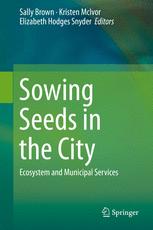

Most ebook files are in PDF format, so you can easily read them using various software such as Foxit Reader or directly on the Google Chrome browser.
Some ebook files are released by publishers in other formats such as .awz, .mobi, .epub, .fb2, etc. You may need to install specific software to read these formats on mobile/PC, such as Calibre.
Please read the tutorial at this link: https://ebookbell.com/faq
We offer FREE conversion to the popular formats you request; however, this may take some time. Therefore, right after payment, please email us, and we will try to provide the service as quickly as possible.
For some exceptional file formats or broken links (if any), please refrain from opening any disputes. Instead, email us first, and we will try to assist within a maximum of 6 hours.
EbookBell Team

4.8
64 reviewsUrban agriculture has the potential to change our food systems, enhance habitat in our cities, and to morph urban areas into regions that maximize rather than disrupt ecosystem services. The potential impacts of urban agriculture on a range of ecosystem services including soil and water conservation, waste recycling, climate change mitigation, habitat, and food production is only beginning to be recognized. Those impacts are the focus of this book. Growing food in cities can range from a tomato plant on a terrace to a commercial farm on an abandoned industrial site. Understanding the benefits of these activities across scales will help this movement flourish. Food can be grown in community gardens, on roofs, in abandoned industrial sites and next to sidewalks. The volume includes sections on where to grow food and how to integrate agriculture into municipal zoning and legal frameworks.